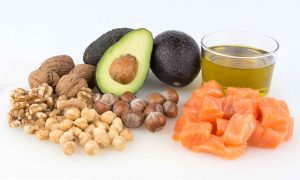Introduction: Understanding Heart Health
Heart Health is crucial for overall well-being and longevity. With cardiovascular diseases being a leading cause of death globally, it’s imperative to prioritize heart health through lifestyle choices. Simple dietary swaps can make a significant difference in promoting a healthy heart. In this article, we’ll explore three straightforward yet effective changes you can make to support better heart health.
1. Incorporate Omega-3 Rich Foods
Omega-3 fatty acids are essential nutrients known for their numerous health benefits, particularly for the heart. They help reduce inflammation, lower triglycerides, and decrease the risk of heart disease. Incorporating omega-3 rich foods into your diet can be a simple yet powerful way to support heart health.
Sources of Omega-3 Fatty Acids:
- Fatty Fish: Salmon, mackerel, sardines, and trout are excellent sources of omega-3 fatty acids. Aim to include these fish in your diet at least twice a week.
- Flaxseeds and Chia Seeds: These seeds are plant-based sources of omega-3s and can be easily added to smoothies, yogurt, or sprinkled on salads.
- Walnuts: Walnuts are a convenient snack option rich in omega-3 fatty acids. Enjoy a handful of walnuts as a nutritious midday snack.
By incorporating these omega-3 rich foods into your meals, you can support your heart health and overall well-being.

2. Choose Heart-Healthy Fats
Not all fats are created equal, and choosing the right fats is essential for heart health. Opting for heart-healthy fats over saturated and trans fats can help lower cholesterol levels and reduce the risk of heart disease.
Heart-Healthy Fat Sources:
- Avocado: Avocado is a rich source of monounsaturated fats, which can help lower LDL (bad) cholesterol levels when consumed in moderation.
- Olive Oil: Extra virgin olive oil is a staple of the Mediterranean diet and is rich in antioxidants and monounsaturated fats. Use olive oil for cooking or as a flavorful salad dressing.
- Nuts and Seeds: Almonds, pistachios, and sunflower seeds are examples of nuts and seeds that provide healthy fats, fiber, and essential nutrients.
Making the switch to heart-healthy fats can improve your lipid profile and support cardiovascular health in the long run.

3. Reduce Sodium Intake
Excessive sodium intake is linked to high blood pressure, a major risk factor for heart disease and stroke. Reducing sodium in your diet can help lower blood pressure and protect your heart.
Tips for Reducing Sodium:
- Read Labels: Pay attention to the sodium content listed on food labels and choose products lower in sodium.
- Cook at Home: Cooking meals at home allows you to control the amount of salt added to your dishes. Experiment with herbs, spices, and citrus flavors to enhance taste without relying on salt.
- Limit Processed Foods: Processed and packaged foods often contain high levels of sodium for preservation and flavor. Opt for fresh, whole foods whenever possible. Explore More About (Pain at Night)
By reducing your sodium intake, you can help manage blood pressure and promote heart health.
Conclusion
Prioritizing heart health is essential for a long and healthy life. By making simple swaps in your diet, such as incorporating omega-3 rich foods, choosing heart-healthy fats, and reducing sodium intake, you can significantly improve your cardiovascular health. Remember, small changes can lead to big results when it comes to supporting your heart. Start implementing these swaps today and take proactive steps towards better.










